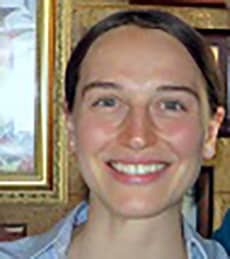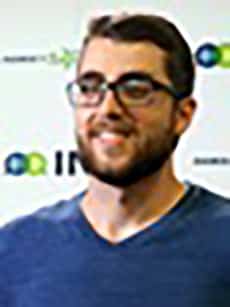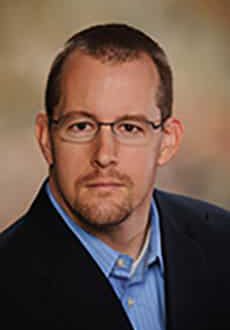Summary
Given three minutes, you have to present your complex, highly technical work to an audience that is educated, but that has specialized neither in your personal niche nor even in your broad field of endeavor. Is it even possible? Can you actually capture their non-specialist imagination and inspire them to ask for more?
As you have doubtless discovered, sheer enthusiasm is not enough to hold people’s attention for any length of time. To engage is effortful: it takes practice and empathy. It’s a challenge. First of all, you have to kill the jargon.
Welcome to the Three Minute Thesis® (3MT®) Competition.
2017 marked the first-ever IMS 3MT® Competition. In three minutes or less, using only one static slide and no other props, 18 finalists delivered their presentations to a panel of non-specialist judges, and were ranked on how engaging, accessible, and compelling they made their presentations. You can find selected videos from the competition on the MTT-S YouTube channel.
The interest in 2017 was enormous; the 3MT® Competition continues into 2018.
In this webinar we address the art of brief, effective live communication of complex technical material in language suited to a non-specialist audience. We draw on actual 3MT® experience, including organizing, mentoring and hands-on competing.
Much of what we discuss is applicable to regular technical presentations: the importance of first impressions, subtext, authenticity, articulation, stage presence, slide composition, metaphor, story-telling, and much more.
Winning 3MT® presentations exemplify tools and strategies: we focus here on Daniel Tajik’s First Place and Audience Choice award-winning IMS2017 presentation “Microwave Holography: The Future of Medical Imaging.”
Let your next talk be your best ever, that is, if you are willing to take the plunge and undertake the effort!
Attendance is free. To access the event please register.
Note: Sponsored content, by paid advertisers, has not been subject to peer review. By registering for this webinar you understand and agree that IEEE may share your contact information with the sponsors of this webinar and that both IEEE and the sponsors may send email communications to you in the future.
Speakers

Assistant Professor of Mathematics
Massachusetts College of Liberal Arts
Erin Kiley is a new Assistant Professor of Mathematics at the Massachusetts College of Liberal Arts. She is an applied mathematician, whose research specializes in modelling and computational electromagnetics, including problems in microwave sintering. She received her B.Sc. (Mathematics and Statistics) and B.A. (Russian) from the University of New Hampshire, and her M.Sc. (Applied Mathematics) and, in 2016, her Ph.D. (Mathematics) from Worcester Polytechnic Institute. She is co-organizing the first ever 3MT® competition for the 2017 IEEE International Microwave Symposium.

Daniel Tajik received his Bachelor’s degree in Electrical and Biomedical Engineering and Master’s degree in Electrical and Computer Engineering from McMaster University in 2015 and 2017, respectively. His Ph.D. research is focused on developing microwave image processing algorithms for use in medical diagnostics. His interests include applications of microwave engineering in breast cancer imaging, stroke detection, concealed weapon detection, and through-the-wall imaging, as well as antenna design for satellite communications. In 2017, Daniel won both the First Place and Audience Choice Awards in the first ever 3MT® Competition at the IEEE International Microwave Symposium for his presentation “Microwave Holography: The Future of Medical Imaging.”

Dr. Michael C. Hamilton is an Associate Professor in the Electrical and Computer Engineering Department at Auburn University and the Assistant Director of the Alabama Microelectronics Science and Technology Center.